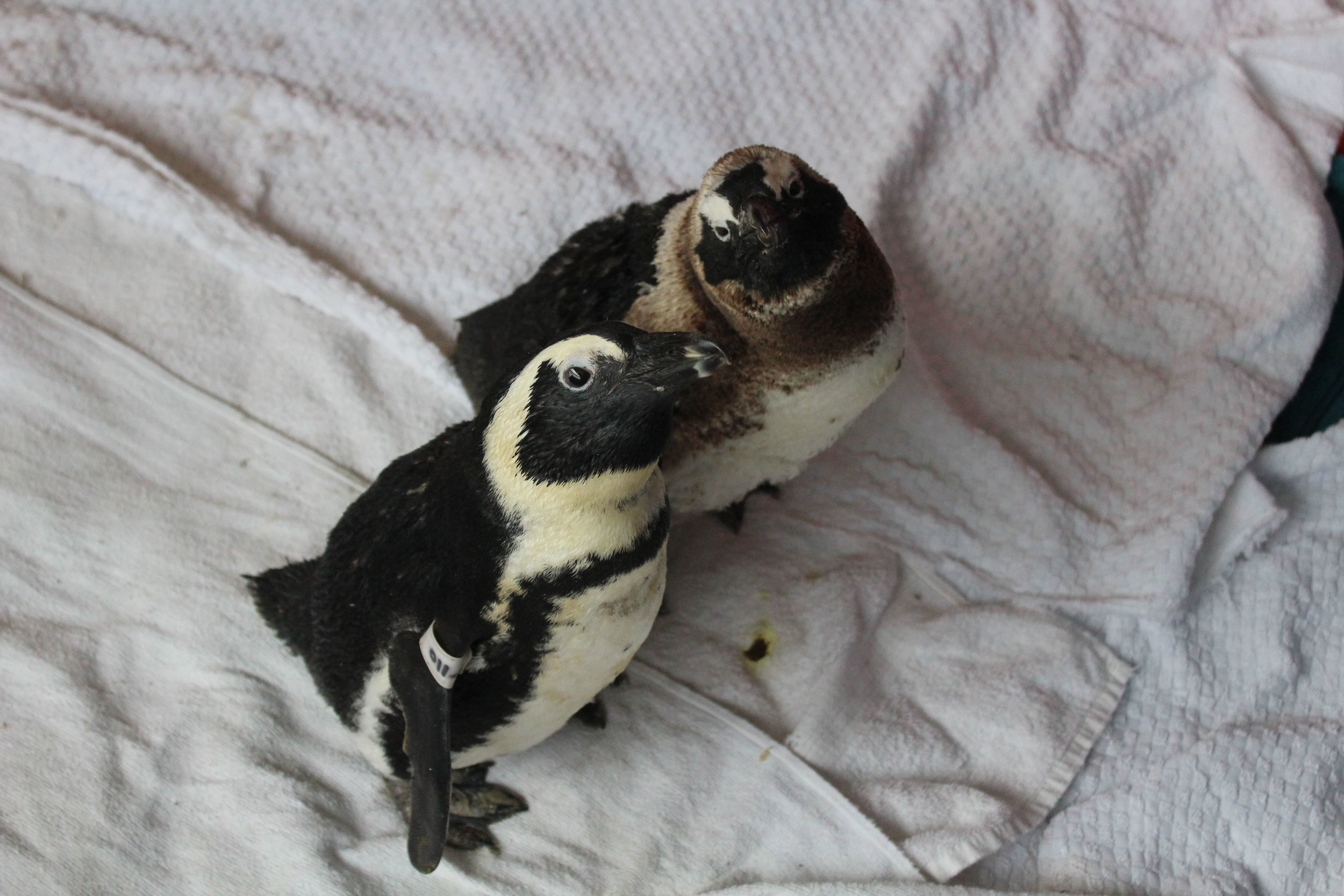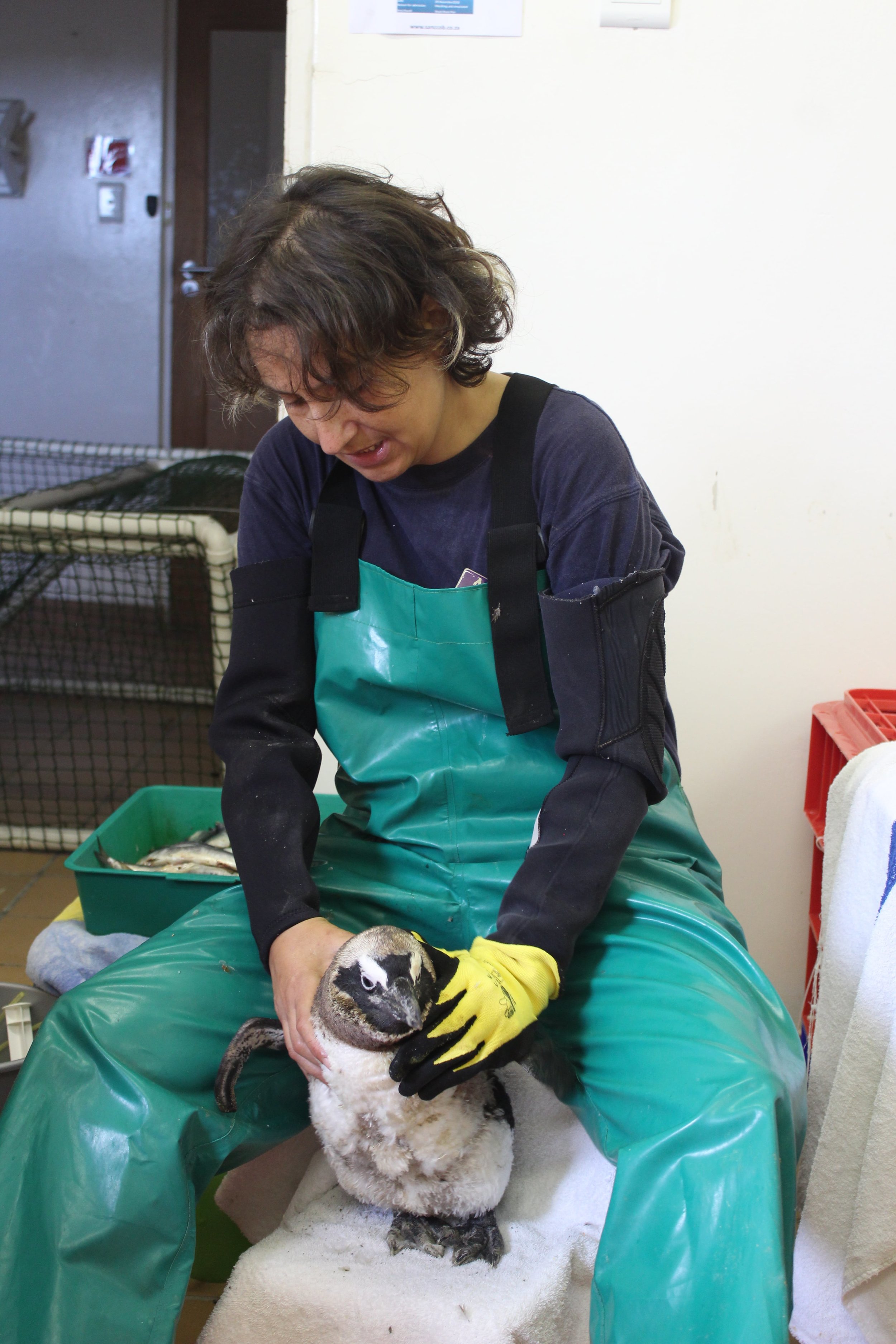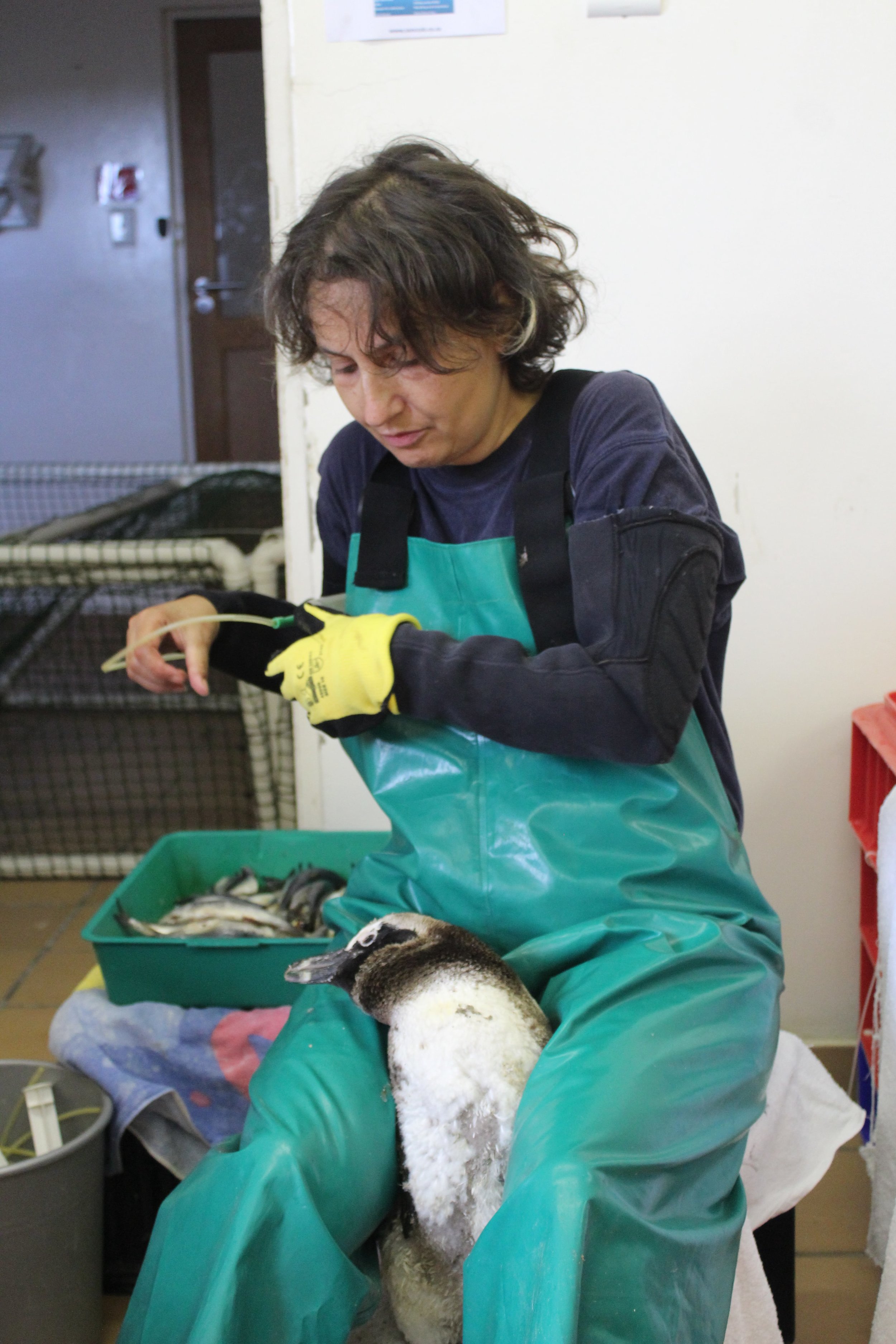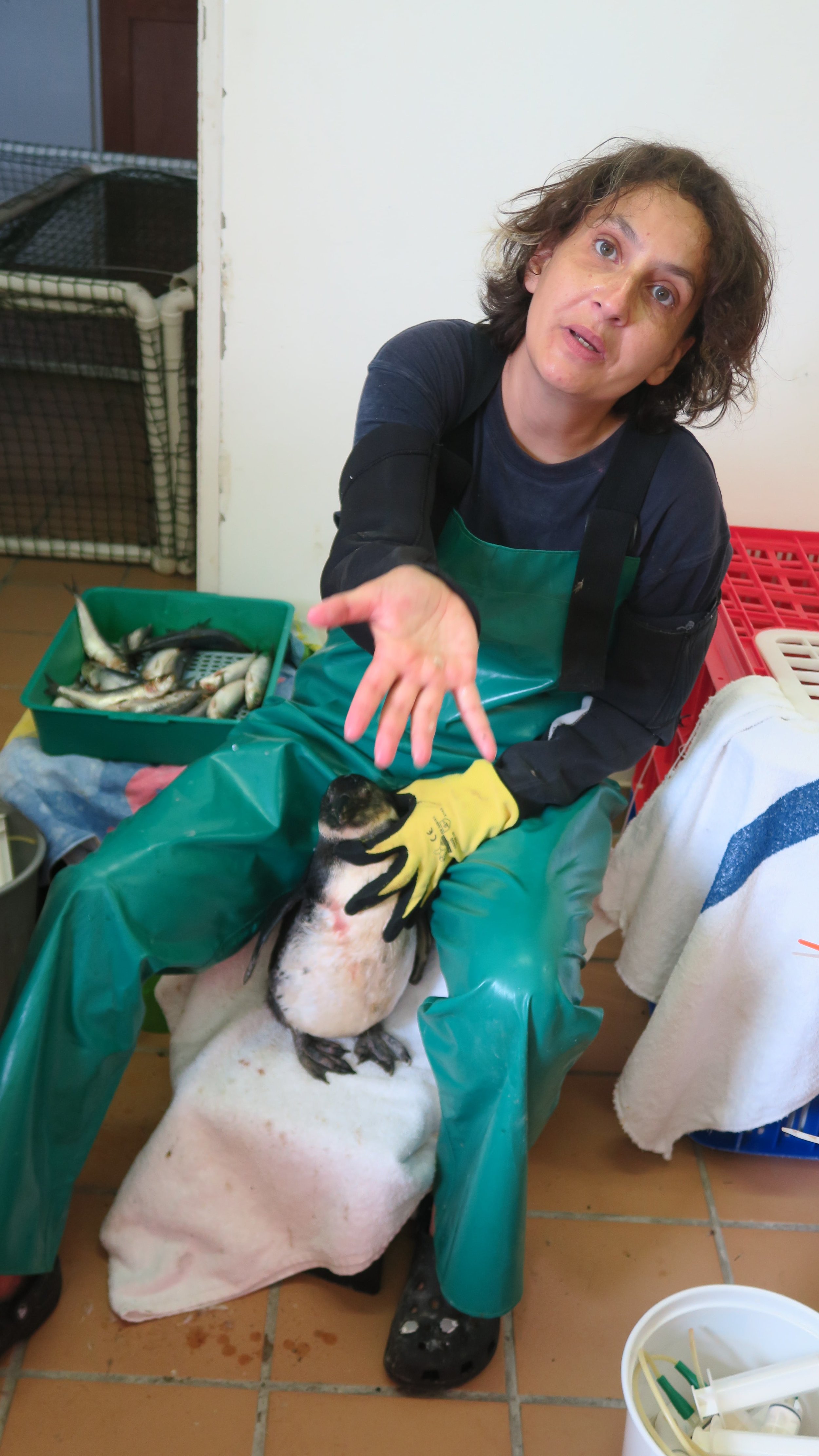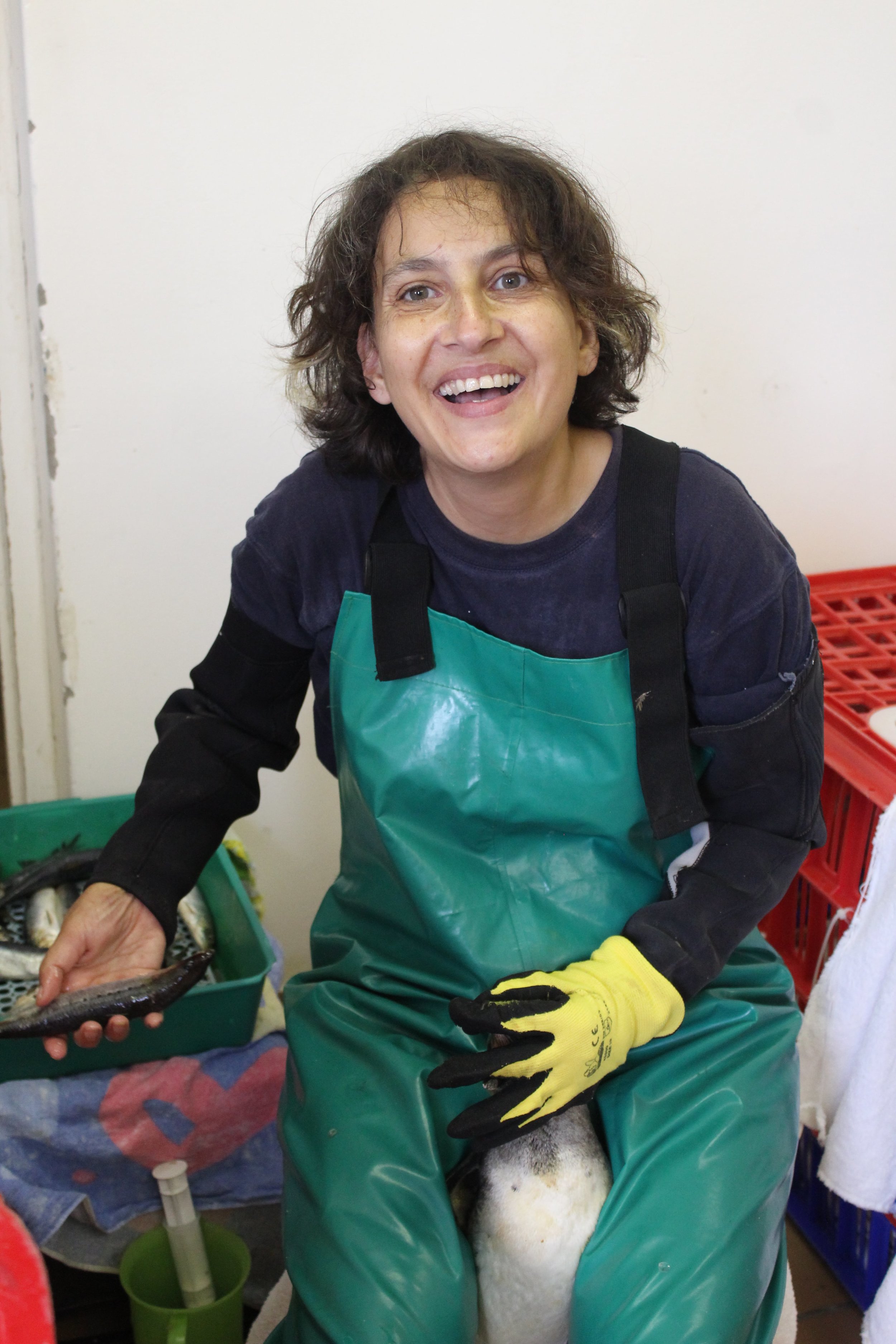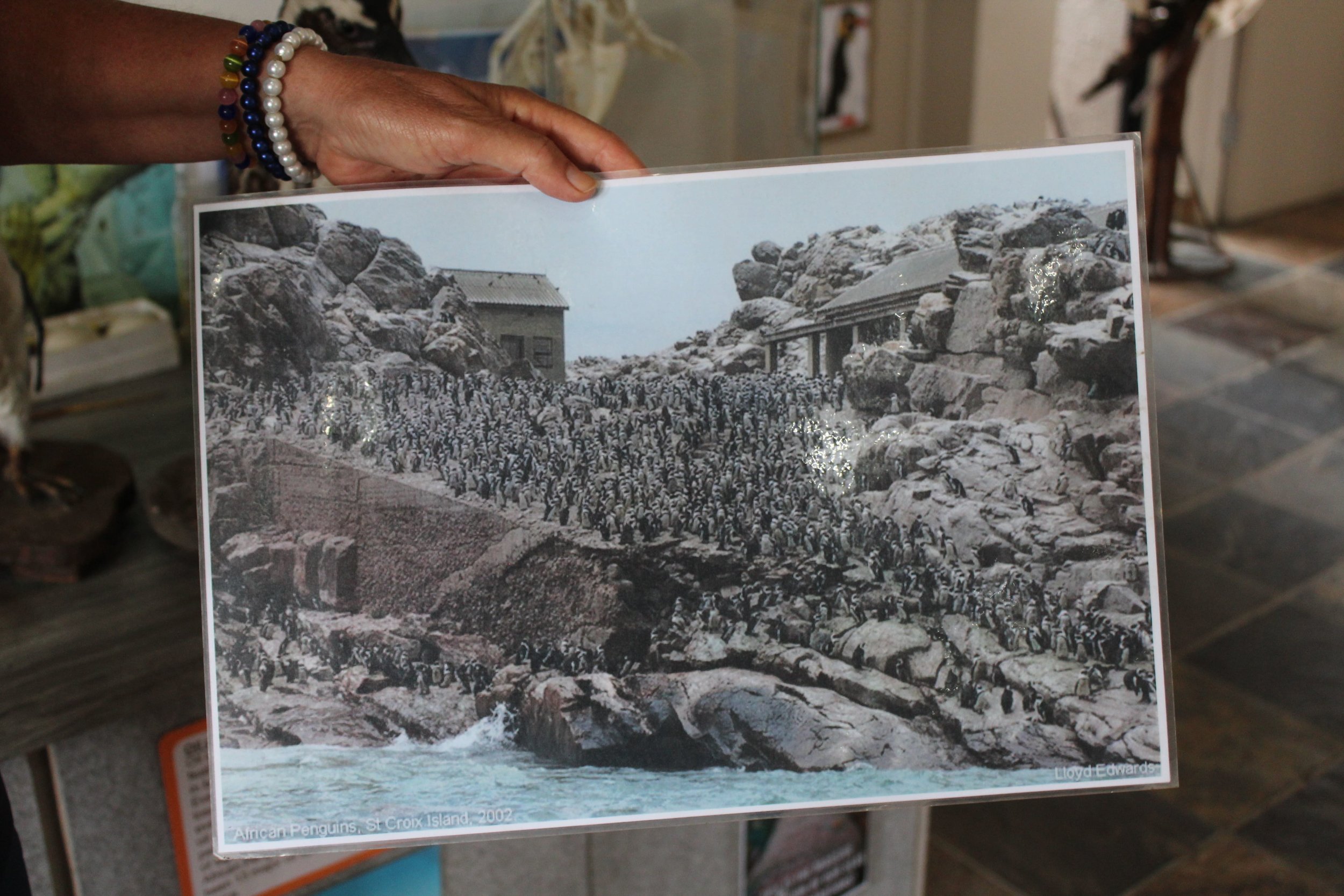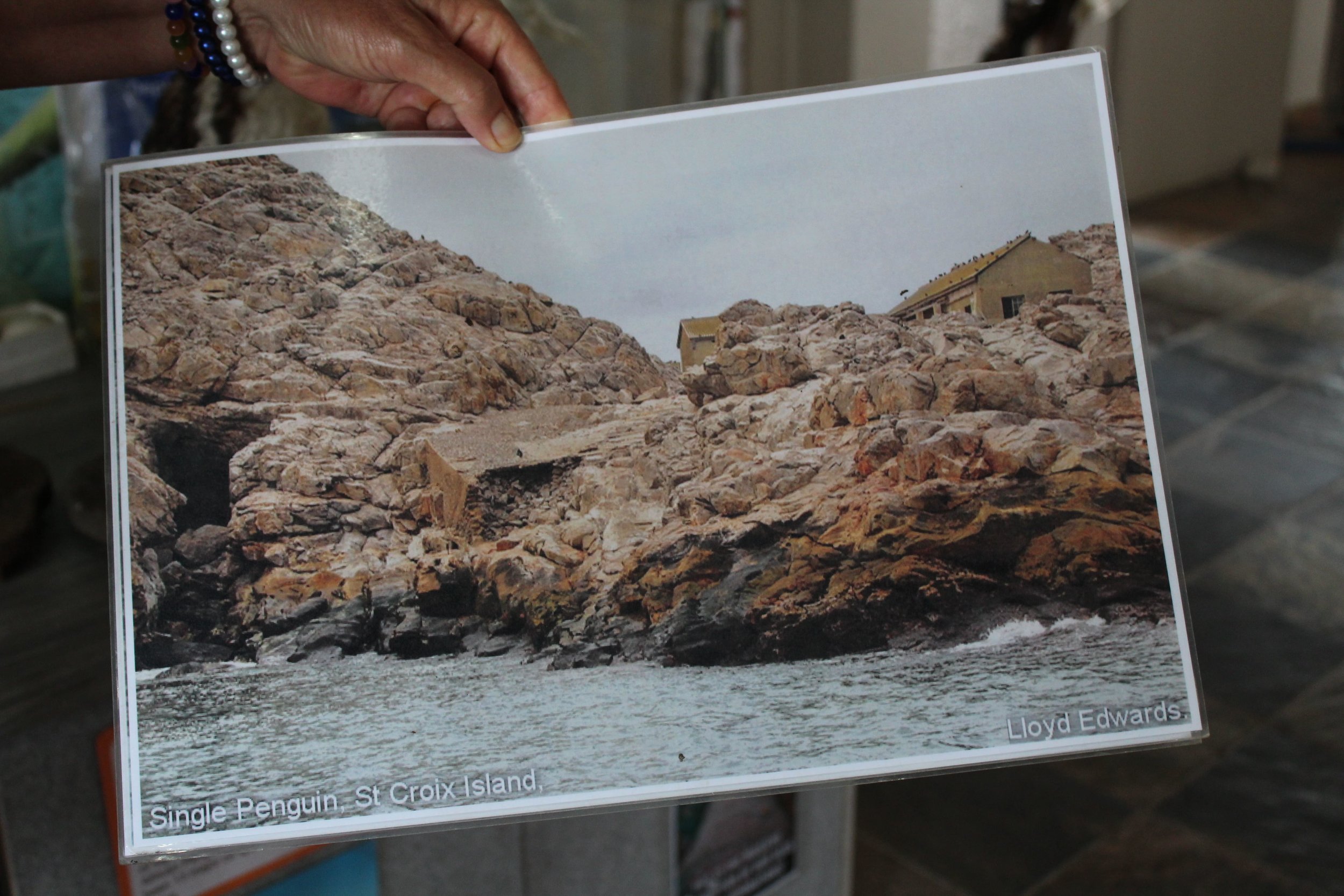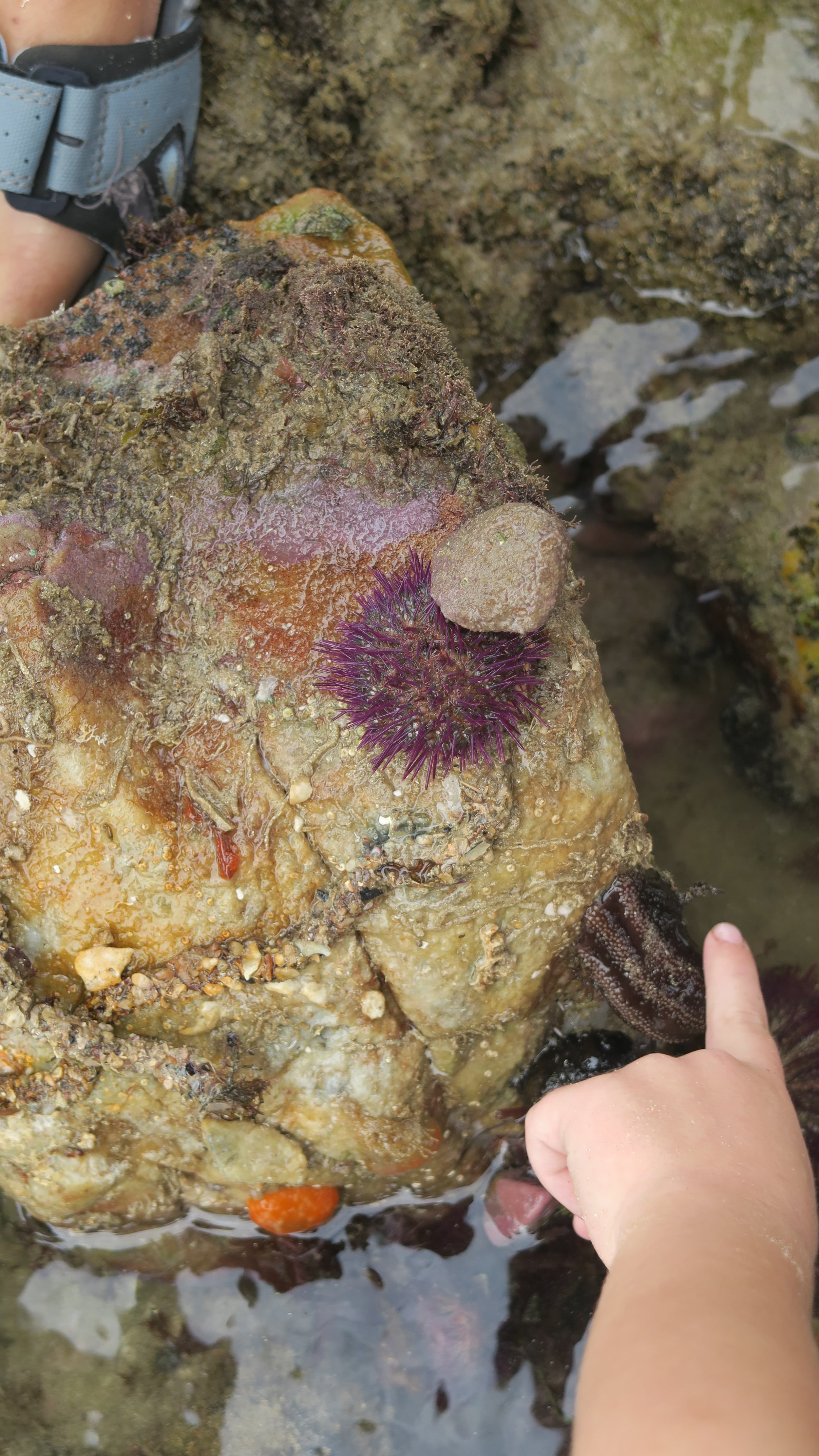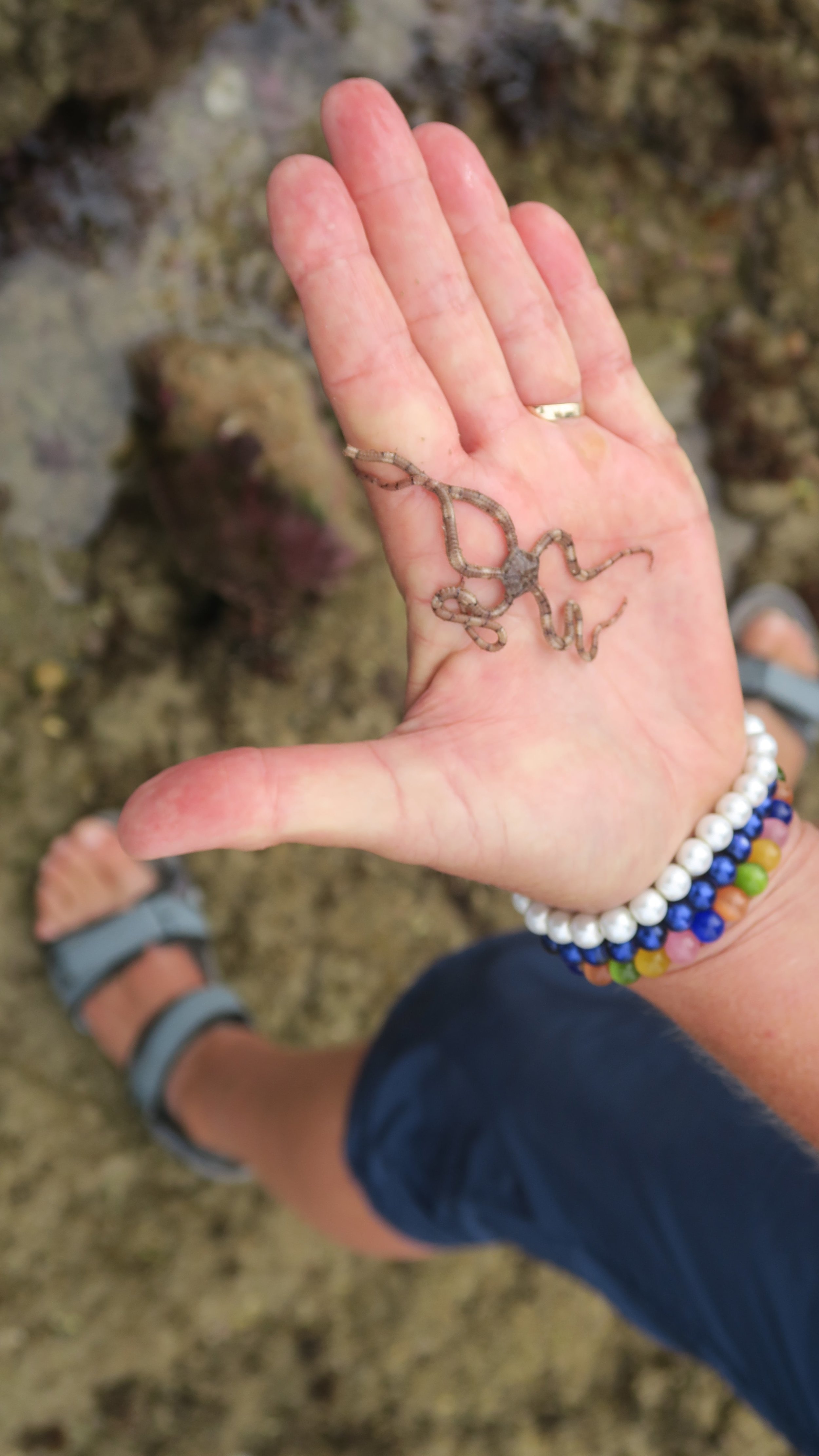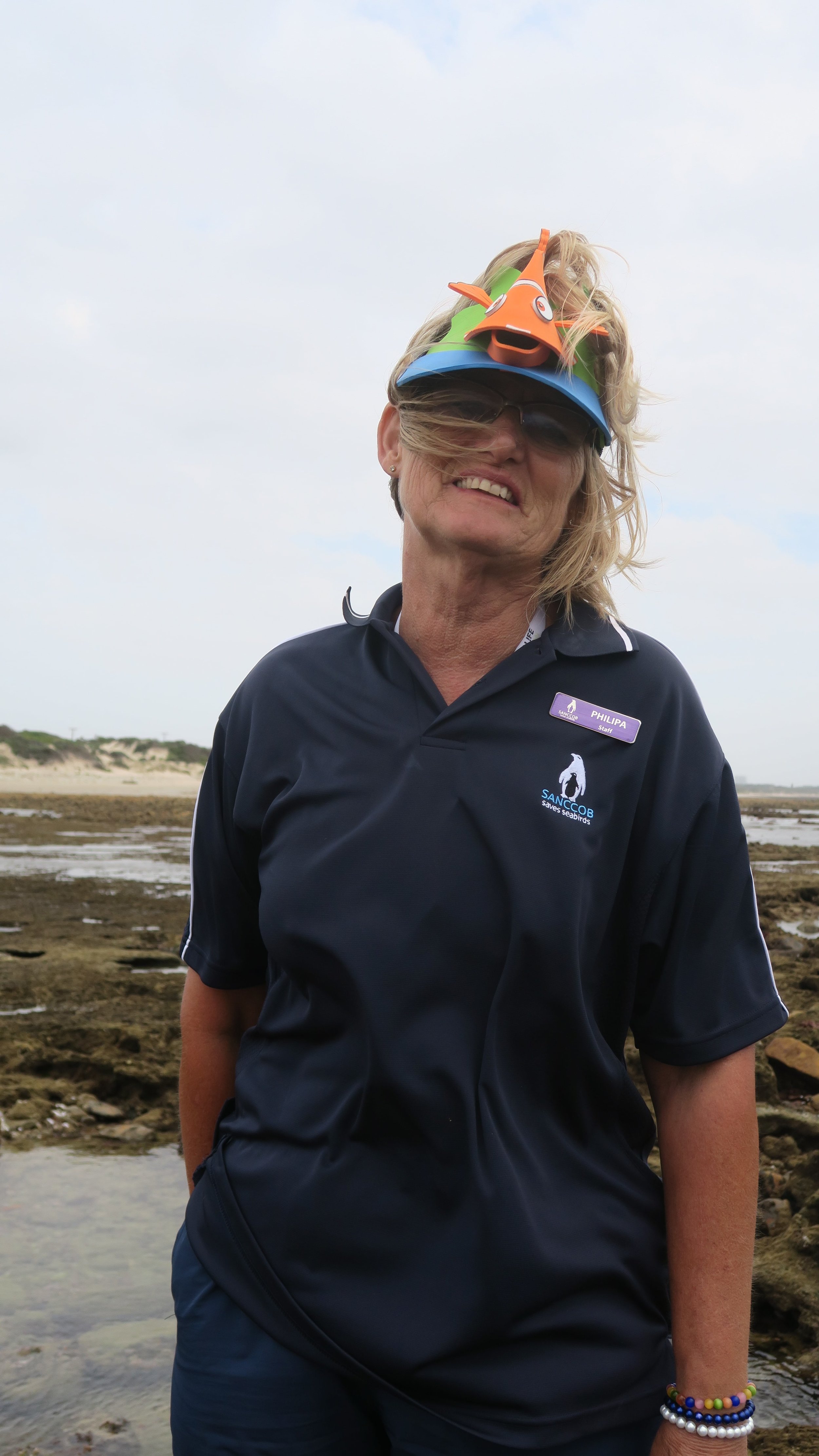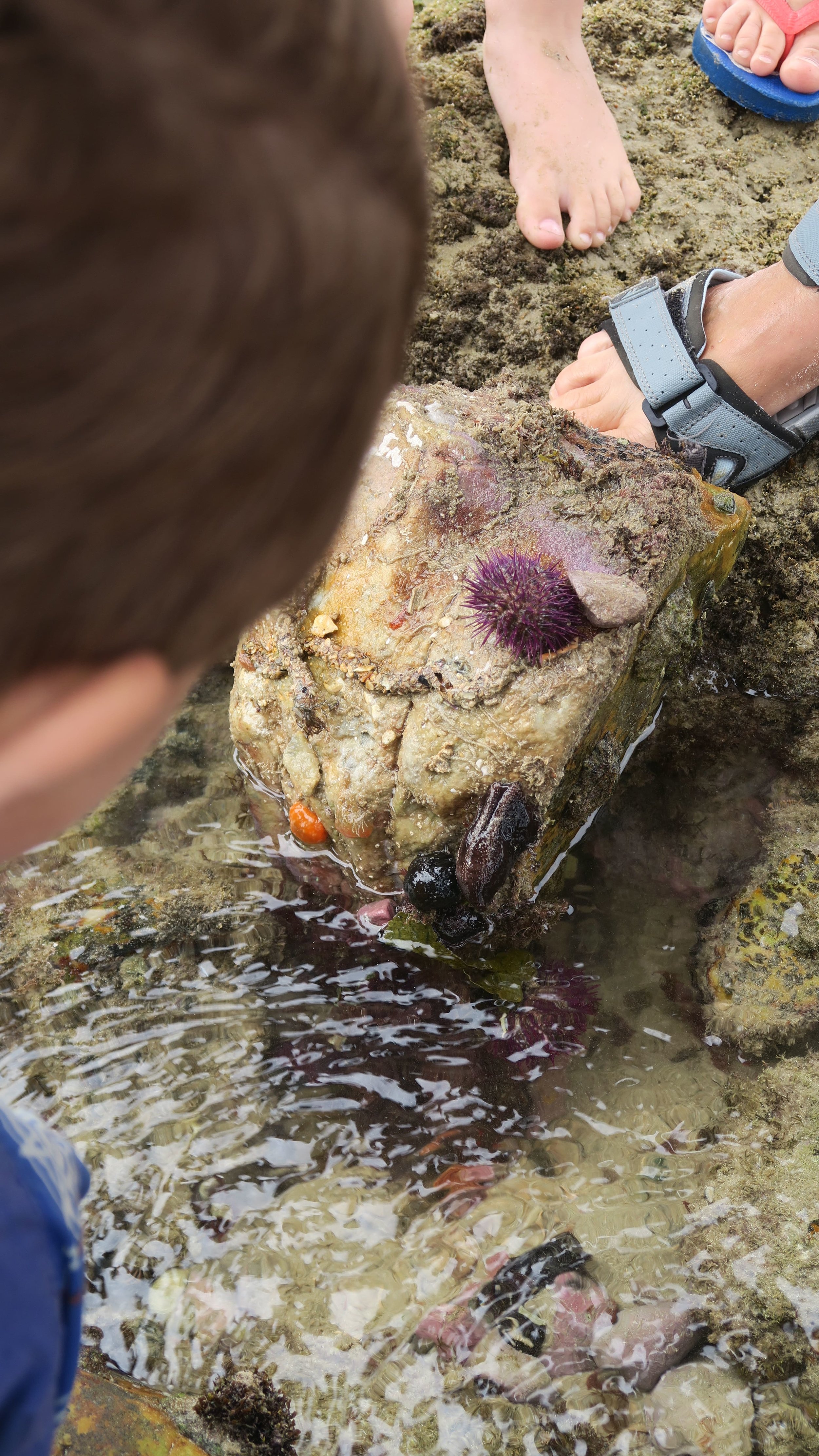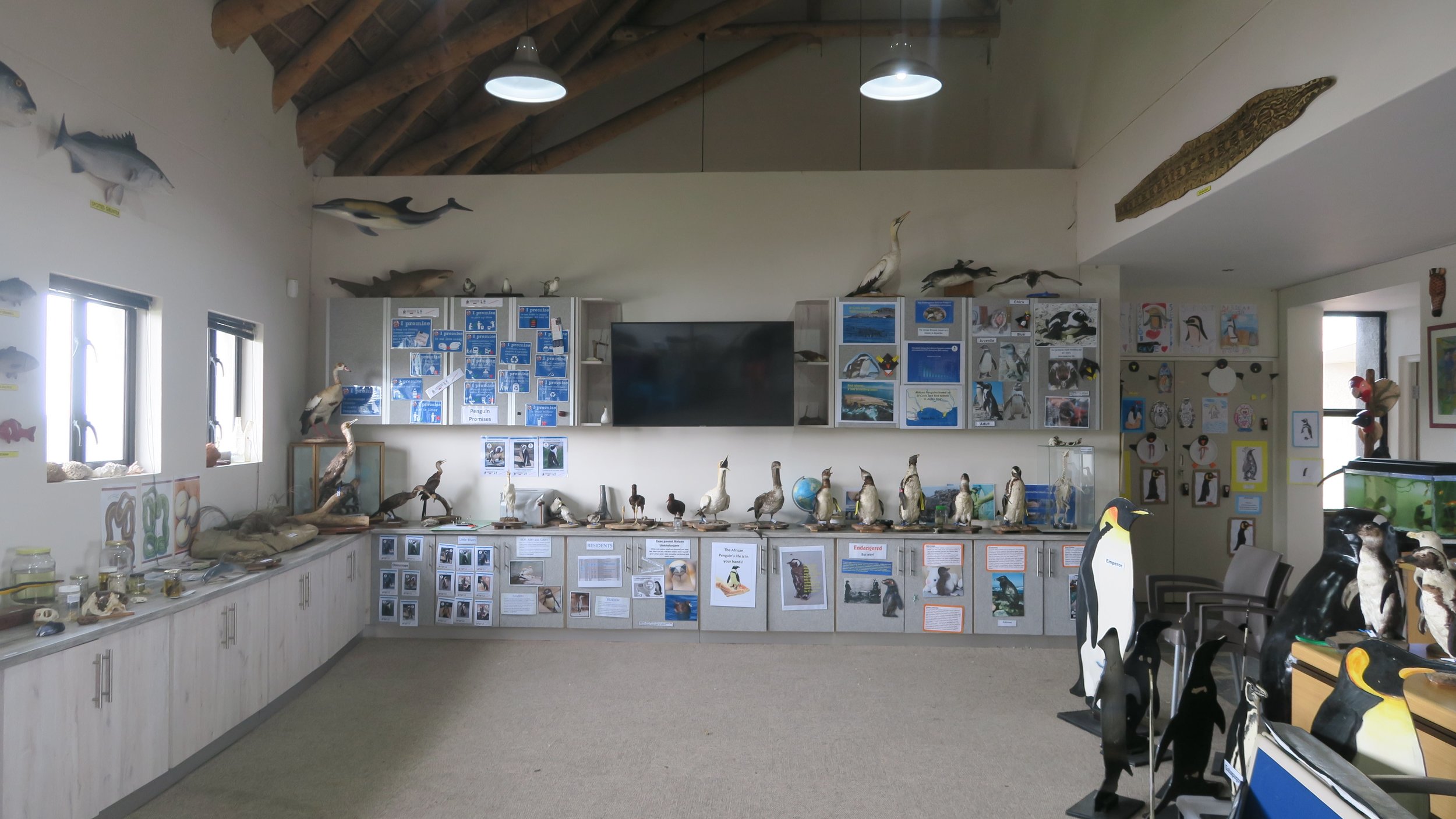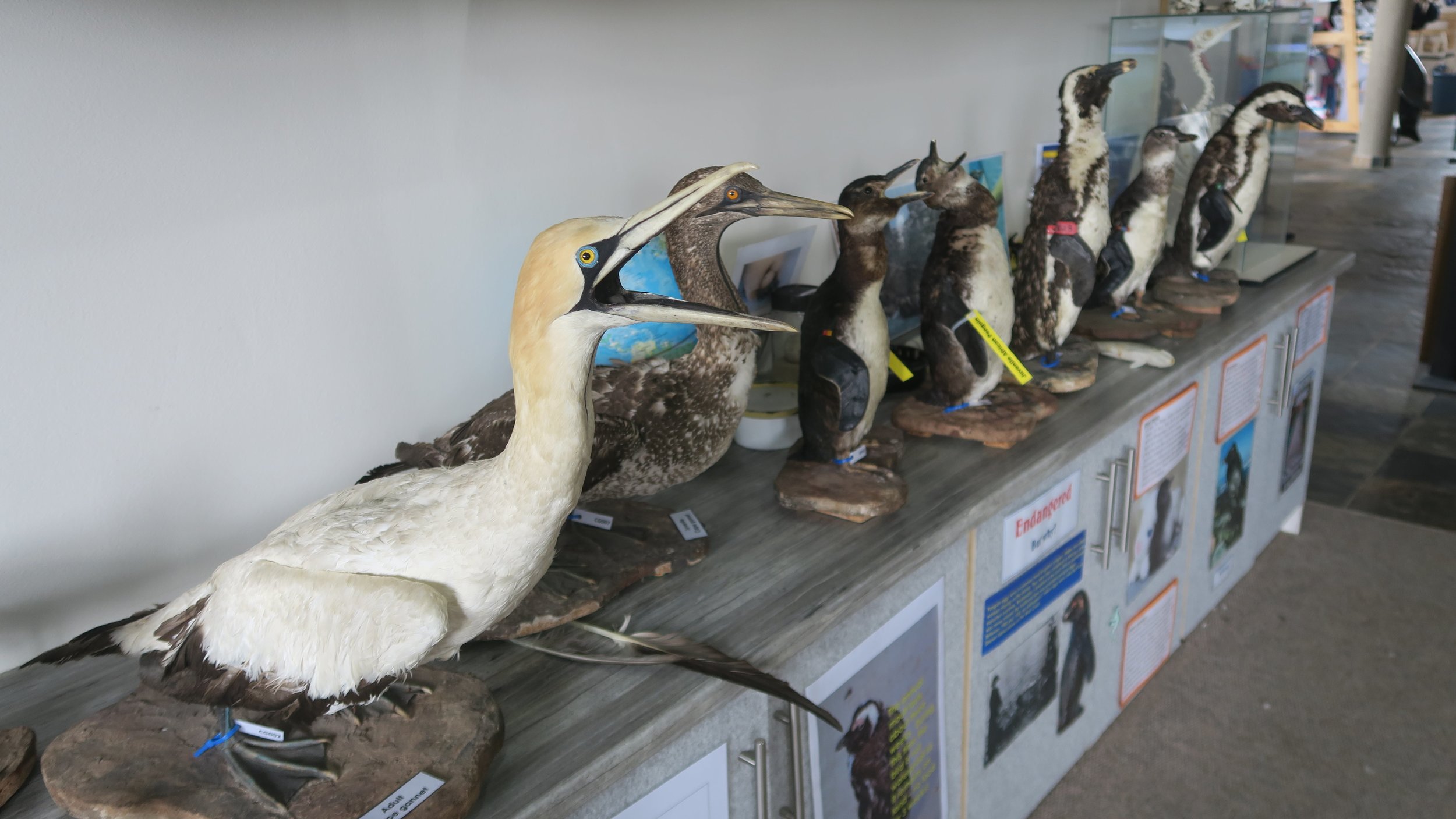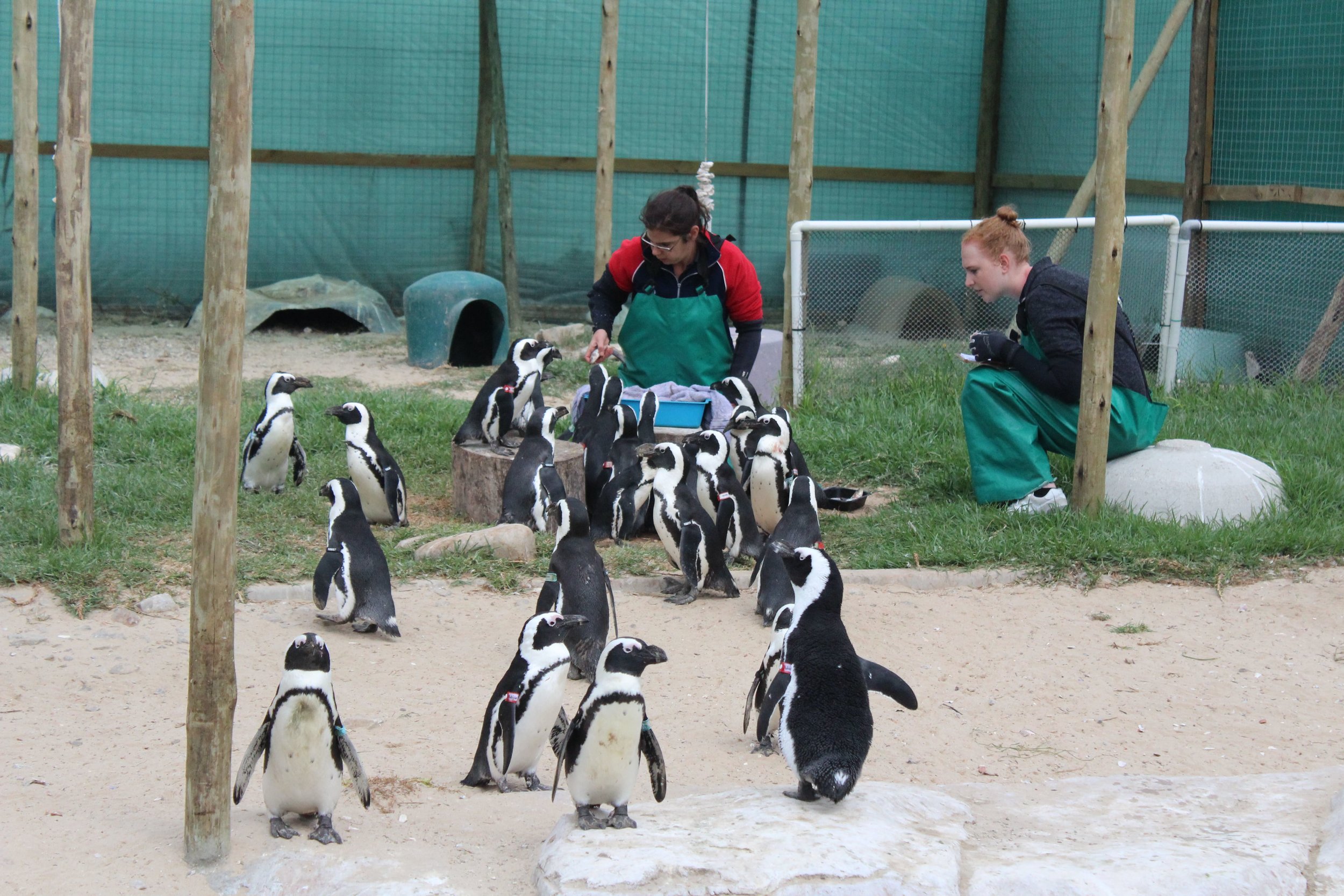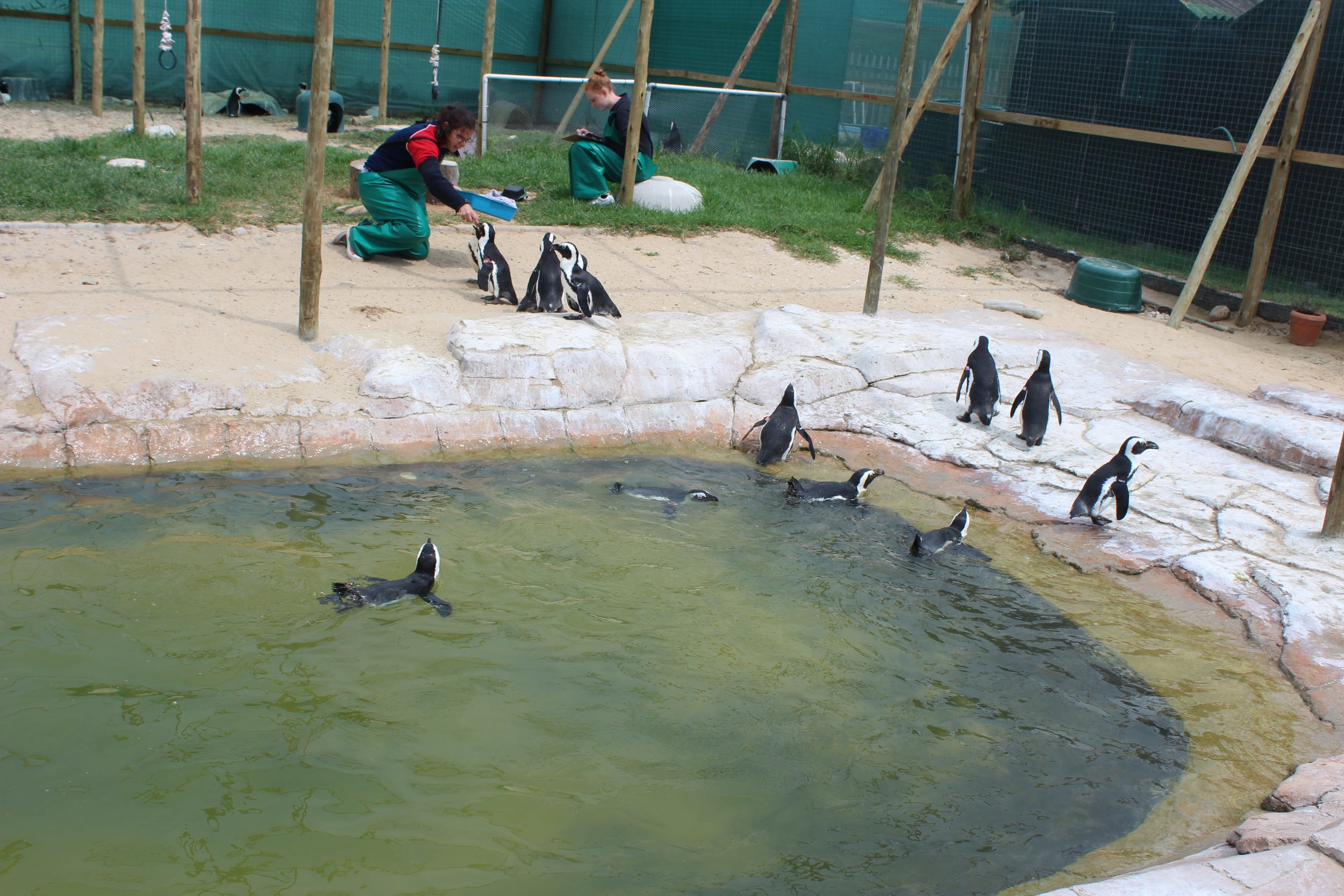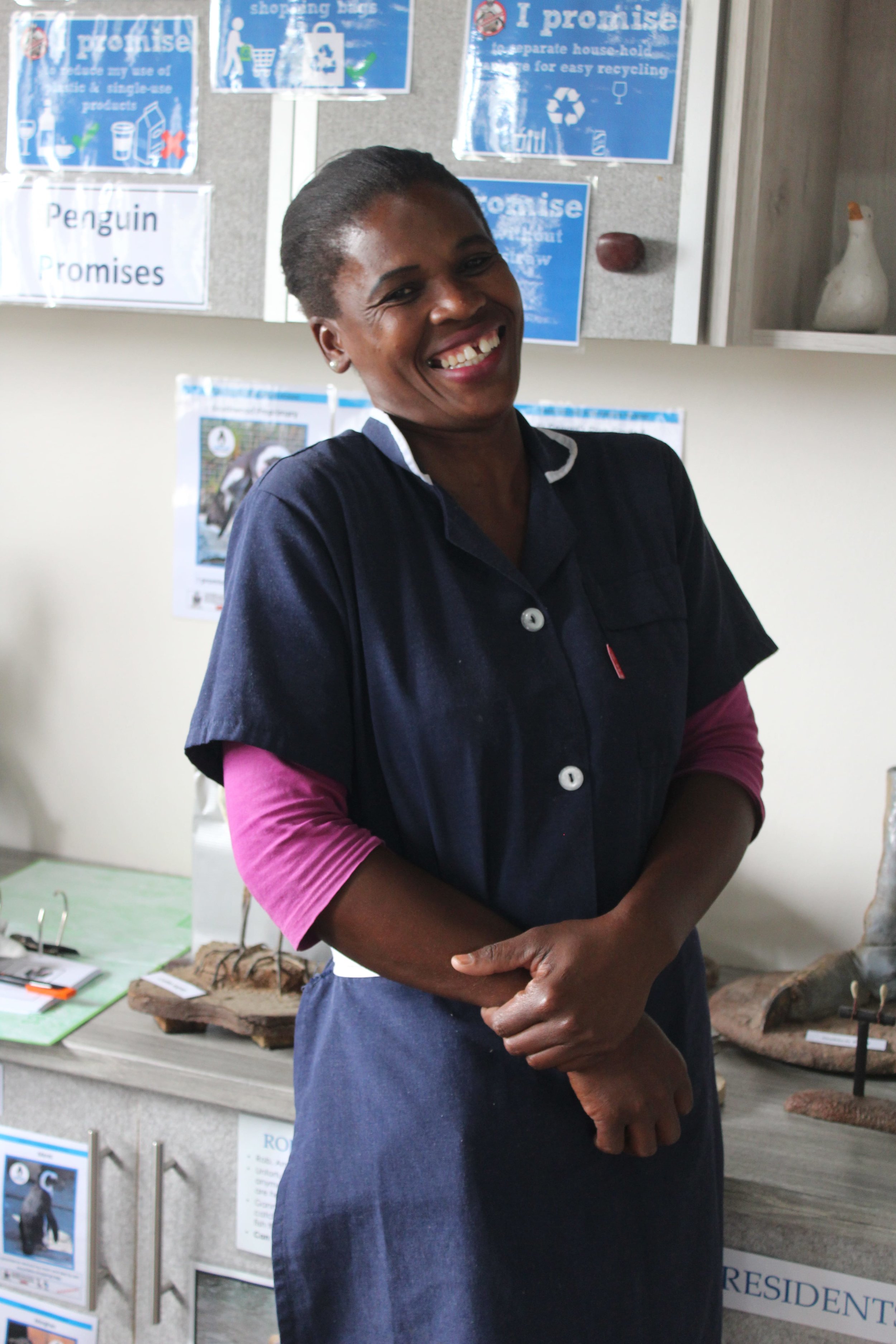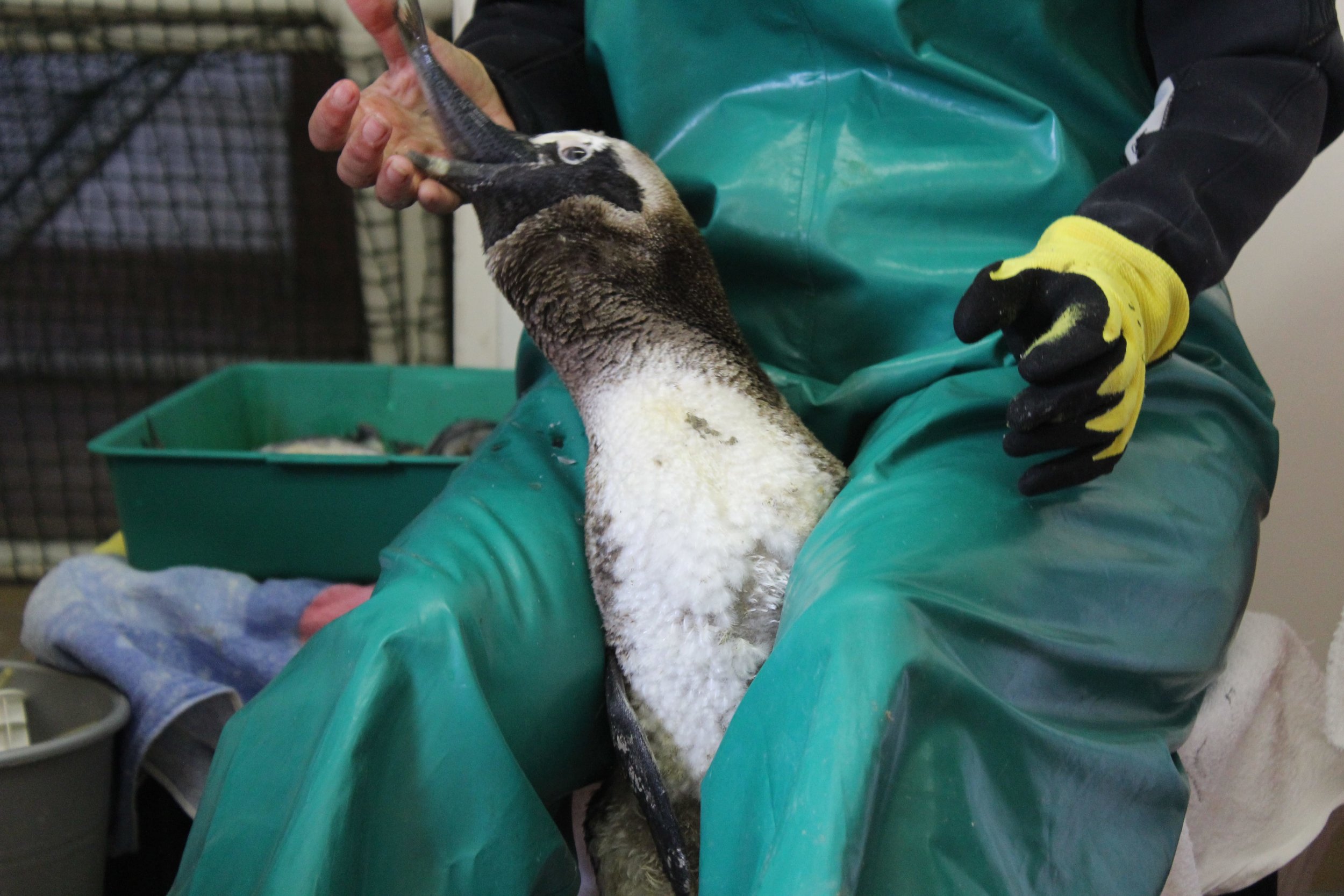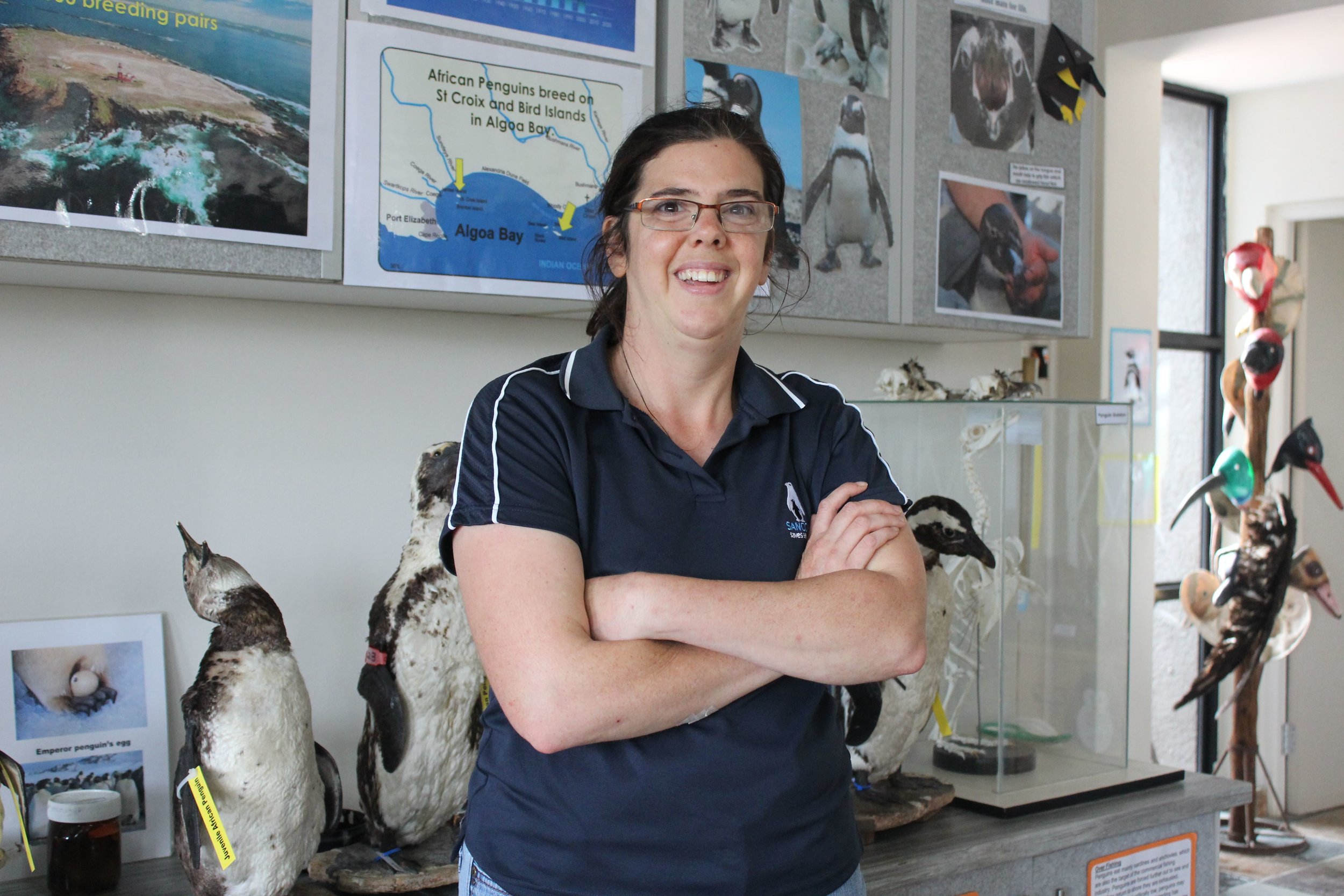Saving seabirds, love affairs and pollution scares
Bonnie and Clyde.
Meet Bonnie and Clyde, two African penguins who fell in love in February while undergoing rehabilitation at the Southern African Foundation for the Conservation of Coastal Birds (SANCCOB), the seabird rescue centre in Port Elizabeth.
As intern Anja Renberg says, “It is not only celebrities who meet in rehab.”
She adds that it is not usual protocol for penguins in rehabilitation to be given names, as it is hoped they will be set free when they are healthy enough to head out on their own.
But the love story of Bonnie and Clyde was a special exception, and the pair captured the interest of many of the workers and volunteers at the centre situated in Cape Recife Nature Reserve.
Both penguins are also believed to be female.
“Penguins are not prejudiced, you see,” Anja explains while feeding the malting Clyde a large syringe of formula containing fish and vitamins, “Isn’t that just the greatest thing?”
Anja is a long way from her home in Oslo, Norway, and her day job in the customer service industry. She has been making a yearly pilgrimage to the African continent since 2014 when she started Keza, a non-profit foundation aimed at helping people in need in Rwanda, South Africa and other African countries.
She has been coming to SANCCOB (formerly SAMREC) to volunteer since 2017, after a tour of the facilities two years earlier. Now, she sees herself as passionate about “people and penguins”.
SANCCOB’s primary objective is “to reverse the decline of seabird populations through the rescue, rehabilitation and release of ill, injured, abandoned and oiled seabirds – especially endangered species like the African penguin”.
In a year where there are no oil spills, this 24/7 rescue service can treat up to 2,500 seabirds from more than 20 different species. Approximately 1,500 of those birds are African penguins but others include cormorants, terns, gannets, oystercatchers, gulls and pelicans.
The non-profit organisation also hopes to inform and educate the public through different programmes at its Port Elizabeth and Cape Town centres.
“Education is so important when it comes to the survival of the penguins. Everyone needs to learn from a young age (about the threat to these animals). We see the pictures and we hear the statistics from only 100 years ago, how things were so different. That is such a short period of time (in the grand scheme of things),” Anja says.
““Penguins are disappearing. We, as humans, have the power to destroy or save them.””
Philipa Wood is Education Manager at SANCCOB in Port Elizabeth, and is working on growing the programme by raising awareness among the community and finding sponsorship for schools, especially those in rural areas, that cannot afford to send their pupils to visit the centre.
She brings with her many years of teaching experience in South Africa, Botswana and Qatar, and a fierce love for educating others about animals and the environment.
“There are a lot of children and adults out there who have lived in Port Elizabeth all their lives and have never been to visit SANCCOB before. Everybody needs to know how sick the environment is,” Philipa explains.
““We call penguins an indicator species. If the penguin is sick, the ocean is sick. “”
“Penguin numbers are dropping drastically, so it means that other sea life is suffering too. We really need to stop polluting our environment; every person needs to understand that the rubbish that lies in the front garden and on the verge could land up in our oceans.”
Penguins are treated at SANCCOB for injuries such as predator shark or seal bites, propeller blade cuts, fishermen’s gaffs or pecking wounds by other penguins, often in the eyes. According to Philipa, when these birds fall ill, it is mainly because of the shortage of fish.
Penelope is a resident bird.
“Large commercial fishing industries are not fishing in a sustainable way. Under-nourishment leads to poor immunity (which) leads to infection from pollutants in the air and water,” she says.
“They can ingest oil and other toxic liquids that are dumped into the ocean. They suffer lung infections and breathing difficulties due to air pollutants. And then there are many that simply starve to death because there simply isn't enough fish to sustain them.”
She adds that adults are often forced to abandon their chicks because they cannot find enough food for themselves and their young.
“Rangers check Bird Island regularly for abandoned chicks which they box and bring to us. We raise them until they are about three to four months old, and ready to swim and find their own food. They are released at the island.”
Philipa teaches groups of school children about different types of sea life by taking them for a tour of the beach and rock pools in the Cape Recife Nature Reserve.
The pools are filled with anemones big and small, multi-coloured crabs a-scuttling over the rocks, starfish, urchins and many other interesting sea creatures.
The youngsters then head back to the education centre to have a snack, look around the displays and exhibits and visit the home pen. All of these penguins have names, and will not be released for various reasons. They are resident birds.
As some of the other volunteers explain, there is never a dull moment in the home pen, what with fights over fish, love triangles and cute moments witnessed watching a blind penguin, Batman, being cared for by Penelope, the slow eater, or Gigi who struggles with a broken hip. They are certainly fascinating creations.
Walk-in visitors and tourists from around the world can also enjoy a guided tour of the centre and home pen for a nominal fee. Many stop for tea or a light meal in the cafeteria too.
SANCCOB survives mostly on donations, private sponsorships and visitors’ fees. They also hold several fundraising events each year, including a golf day and an auction. African Penguin Awareness Day is celebrated every October with fun family activities, and hopefully, a penguin release.
Members of the public can help by visiting the centre, taking part in the Moonlight Walks and attending the public releases of the rehabilitated seabirds. Or why not “Adopt a Penguin” for yourself or a gift to a special someone?
This is an organisation that does exceptional work to save South Africa’s seabirds with the help of committed volunteers, interns, researchers, veterinarians, cooks and cleaners.
And for those of us who believe in fate, serendipity and coincidence, if you will, this is the very organisation that helped Bonnie and Clyde find love…in rehab.

